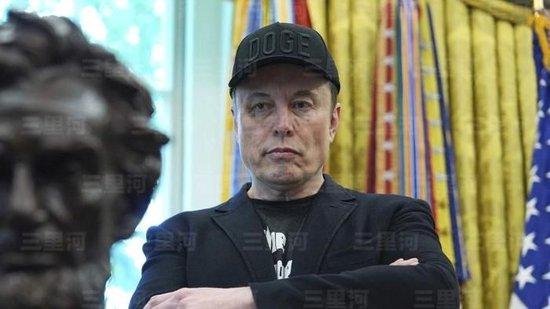
After Tesla’s market value plummeted by a billion dollars in a week, Musk initiated a new political campaign in the United States.
The world’s richest man boldly announced the establishment of “The American Party,” targeting his former ally and current President Trump. This was a naked gamble for profit.
The stakes were his business empire—Tesla, SpaceX, and all his political capital in the United States.
This was not an impulsive decision on Musk’s part.
Just the day before, Trump officially signed the “Bigger is Better” bill, which not only canceled several clean energy incentive policies but also indirectly hit Tesla’s carbon credit trading business. For Tesla, which had earned 2.8 billion dollars in carbon credit income over the past year and nearly 40% of its profits, this was like cutting off its lifeline.
JPMorgan Chase had predicted earlier in the year that the elimination of the electric vehicle tax credit could reduce Tesla’s annual operating profit by $1.2 billion.
Now, nightmares have come true. The “person who made the move” is exactly the Trump who Musk invested over $200 million in campaign funds to support.
Once a benefactor, now an adversary.
Musk couldn’t hide his anger. He posted several posts on social media, condemning the bill as “absurd,” “revolting,” and “crazy and destructive,” directly accusing it of “giving handouts to sunset industries while severely damaging future ones.”
Trump immediately countered: “The subsidies Musk received are more than any person in history,” and declared, “Without subsidies, Musk might have to shut down and return to South Africa.”
The conflict escalated further, and Musk took another step. He announced the establishment of “The American Party,” claiming to “return freedom to the people,” and planned to win 2 to 3 Senate seats and 8 to 10 House seats in the mid-2026 elections—in a Congress where seats are tightly contested, these would be enough to tip the scales in favor of legislation.
External observers believe this might be Musk’s negotiation strategy.
In the mid-2026 elections, by dispersing Republican votes to pressure Trump, in exchange for a compromise on current policies, it can be said that this is a business counterattack using votes as a weapon.
The game has begun, but it’s not easy to play.
Firstly, there are entry barriers. Based on current law, new political parties in the United States must undergo complex certification procedures to become eligible to run for office. The New York Times has pointed out that establishing a new national party in the United States might be more difficult than sending people to Mars.
Secondly, the “winner takes all” election system in the United States naturally hinders the development of third parties. Hans Noel, a professor of political history and political methodology at Georgetown University in the United States, noted, “In the United States, you have to win completely to get rewarded. You cannot win 20% or 30% of the vote through forming a small party and then gain seats in the legislature and gradually develop based on that.”
The Financial Times also analyzed that even if Musk uses his substantial funds to support a new political party, it would be difficult to break the monopoly of the two major parties: the Republicans and Democrats.
Lastly, what’s worse is that the more active “political Musk” becomes, the more cautious the capital markets become. Investors worry about his distractions and more about his political confrontations potentially affecting the business prospects of his companies.
On July 7th, due to the global car delivery volume of Tesla declining by 13.48% year-on-year in the second quarter and the public split between Musk and Trump, Tesla’s stock price fell by 6.79%, with its market value shrinking by over $68 billion.
Investors and shareholders’ concerns are clear: they do not want a “politician Musk,” but rather a CEO who is focused on manufacturing cars and can bring returns.
After all, in this high stakes gamble, not only does Tesla hold the chips, but so does SpaceX, which holds a federal contract worth $22 billion, and Musk’s yet-to-be fully realized hyperloop, brain-computer interface, and Mars colonization dreams.
In the confrontation with Trump, Musk has gambled everything. A misstep could undoubtedly deal a heavy blow to his business empire.
Behind this “big bet,” lies the vulnerability of the US political and business relationship. On the surface, it’s a clash between capital and power, but in reality, it’s a deep fissure within Trump’s political alliance.
Trump and his supporters’ policy core leans towards anti-globalization and anti-free trade. Whereas Musk represents the “technological right,” based on global markets, embracing free trade, and relying on open environments and cross-border supply chains. Their support for Trump stems more from practical considerations against Democratic leftist regulatory and tax measures. This “strategic alliance” can disintegrate once there are core interests divergence.
This is not just Musk’s gamble; it’s a mirror reflecting the entire American political ecosystem—a failed attempt by tech capital to dominate political agendas.
The reality is harsh. Despite Musk’s brazen behavior in the White House, Trump neither targeted tech giants nor capitulated to lobbying when it came to imposing tariffs. Now, even Tesla has been precisely hit, becoming another “sacrificial lamb” close to political power yet unjustly punished.